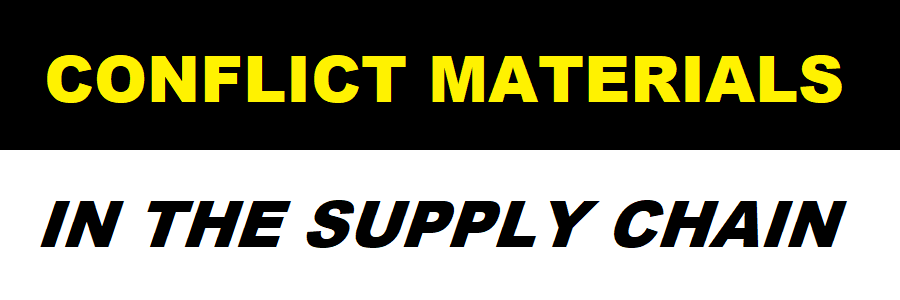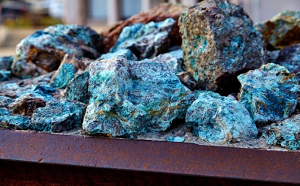Protecting Your Supply Chain from Conflict Materials
by Black Ink Team

Reputations can be made or broken in a matter of days - or even hours - in today's world of social media, the Internet, and 24-hour news coverage. That is why it's so important for companies to do everything in their power to make sure they aren't doing anything unethical; as a lot of consumers, especially millennials, check around to see if there are any unsavory stories about a company before buying one of their products. Across many different product categories, batteries are replacing combustible fuels as internal energy sources. Lithium is one of the most conductive elements used in creating rechargeable batteries, but it is too unstable to be used on its own. One of the ways that it can be made more stable is by turning it into a compound with cobalt - that's where controversy sets in.
The area of the world that is richest with cobalt happens to be the Democratic Republic of the Congo, a country plagued by war. In the past, various factions have taken control over cobalt mines in the area and have used them to finance more fighting. There have reportedly been cases of child labor, human slavery, and unsafe work conditions that have happened during this conflict. By disguising their operations as legitimate ones, rebel factions who seized control over cobalt mines have been able to sell cobalt to the market at large. In 2017, multiple electric car companies were suspected of using cobalt from such a mine. This problem has affected electric car manufacturing in general. For example, even though they were not found to have been using conflict materials, Tesla released a statement saying that they would increase their efforts to assure that they won't let any conflict materials enter their supply chain.

Cobalt ore
With the growing complexity of supply chains, it can be difficult to ensure that every part of one is conducting business ethically. Thankfully, there are ways of providing supply chain transparency that make supply chain management easier. RFID tags or GPS transponders, for instance, embedded in shipments of raw materials can help supply chain managers trace exactly where they originated from. Tamper-proof seals affixed to raw materials by non-biased parties can let factories know they are procuring them from a reputable source. Furthermore, blockchain applications for supply chain reporting can assist in providing transparency and accelerating data dissemination. Manufacturers can and should work together to improve industries as a whole – for instance, a shared 'blacklist' can be created to let companies know which suppliers to stay away from.
Letting conflict materials into your supply chain can ruin your brand’s profitability. First, it will tarnish your reputation - having used raw materials that were sourced unethically either show that you are, yourself, unethical or that you are simply incompetent. Next, in order to stay on good terms with your base of loyal customers, you may have to replace their products with new ones. And finally, having a negative story about your supply chain circulate will cause people to question other aspects of your business, which will make it harder for you to develop good relationships. Because they would add to the severity of the outcome if news about them got out, efforts to suppress reports of conflict materials entering your supply chain are never a good idea. It is always safer to announce your wrongdoing yourself, rather than try to hide it.
